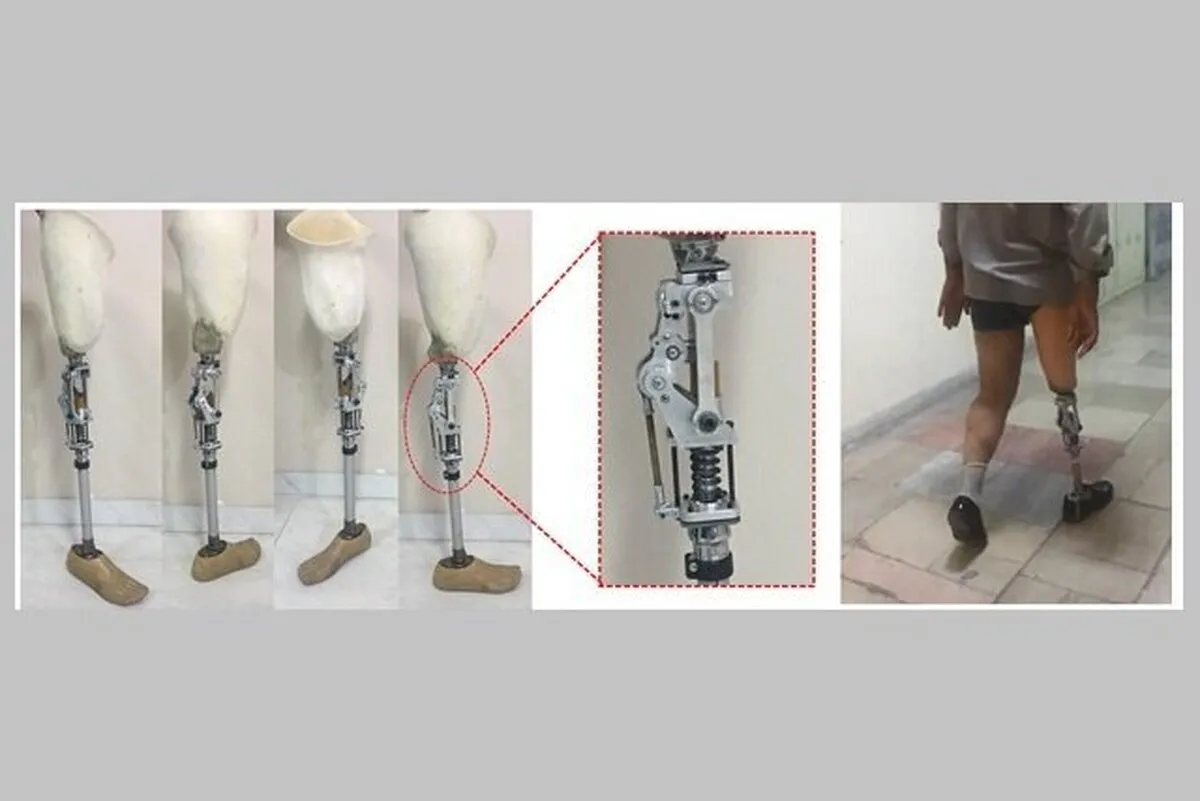Iranian Researchers Produce Passive Artificial Knee for Amputees

Rezan Nasiri, a professor at the Machine Intelligence and Robotics Department of University of Tehran (UT), said in an interview with Iranian media that amputees make up the majority of the physically disabled community in the country, and a large number of them are war veterans.”
Expressing her regret that the artificial body parts available in the country are either not of good quality in their construction and design, or they are available for huge prices, she added, “Among the most important of these artificial body parts is the artificial knee for above-knee amputees, which greatly affects the way they walk.”
“For that, this research group, in the form of the master's degree research project jointly conducted by Ayoub Davoudi and Zain El Abedin Soleimani, in 2025 started studying the biomechanics of the body during walking, the role of the knee and how it functions during walking and finally designed an effective artificial knee at a low cost,” the professor added.
"By studying the biomechanics of the human body, we found that the knee has a dual function during walking, so that when it is on the ground (stance phase), it has high hardness and when it is swinging off the ground (swing phase) it has low hardness,” the professor went on to say.
“The result of this research work was the design of a new passive prosthetic knee with a dual function similar to the natural knee,” the researcher said, adding, “This design was tested on above-knee amputees and was patented in the US Patent Office under the name passive prosthetic knee in 2022."
Showing the following images of the passive prosthetic knee, the UT professor said, “The performed analyzes have evaluated the performance of this artificial knee as very suitable and placed them among the best artificial knees also designed by international companies.”
She went on to talks about their another project being worked on by their research group, saying that “In the current research project, a group with the cooperation of a team of 10 UT undergraduate and graduate students are designing an artificial organ that can directly interact with the brain and nervous system.”
“The purpose of the project is to create a new generation of artificial organs that have a much better performance and more capabilities and are similar to real organs of the human body,” the head of the UT research team concluded.
4155/i





















